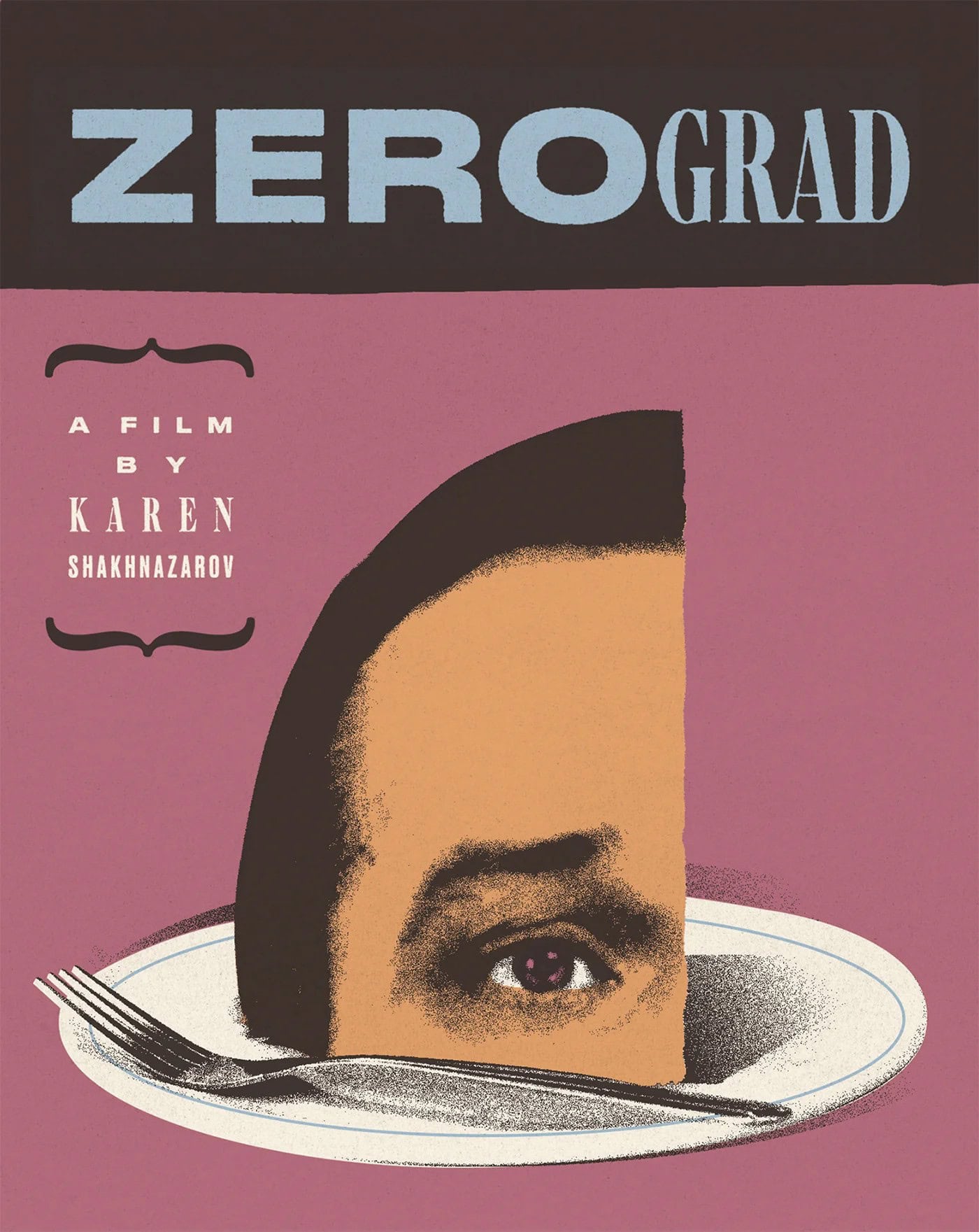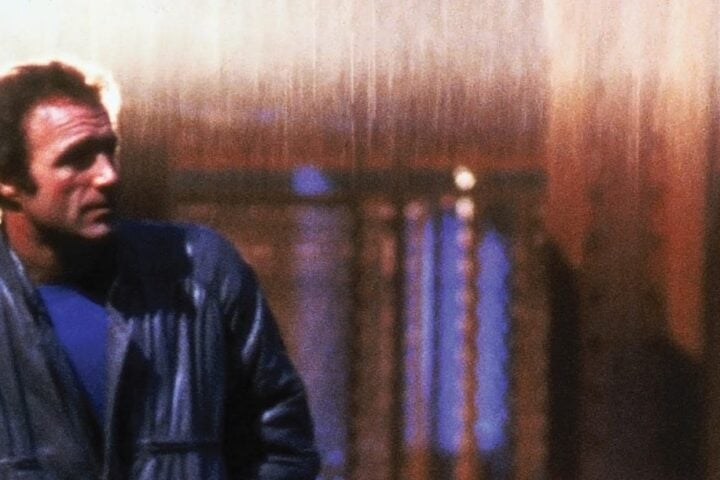 Released the year before the dissolution of the Soviet Union, Karen Shakhnazarov’s absurdist satire Zerograd captures the disorientation and terror of gradually coming to realize that you live in a reality you no longer recognize. Arriving in a remote city in order to get a replacement for his company’s dysfunctional air conditioning unit, ordinary worker Alexei (Leonid Filatov) expects a short, uneventful visit before returning to Moscow. But when he runs into a secretary working in the nude at the manufacturing plant and witnesses a chef committing suicide after Alexei refused to eat a slice of cake that’s a full-size replica of his head, our protagonist is increasingly confronted with a world whose rules, behaviors, and morals are patently absurd. And, it turns out, he’s the only one that sees them as such.
Released the year before the dissolution of the Soviet Union, Karen Shakhnazarov’s absurdist satire Zerograd captures the disorientation and terror of gradually coming to realize that you live in a reality you no longer recognize. Arriving in a remote city in order to get a replacement for his company’s dysfunctional air conditioning unit, ordinary worker Alexei (Leonid Filatov) expects a short, uneventful visit before returning to Moscow. But when he runs into a secretary working in the nude at the manufacturing plant and witnesses a chef committing suicide after Alexei refused to eat a slice of cake that’s a full-size replica of his head, our protagonist is increasingly confronted with a world whose rules, behaviors, and morals are patently absurd. And, it turns out, he’s the only one that sees them as such.
There are certainly shades of Franz Kafka in this unnerving portrait of labyrinthine bureaucracy and existential despair, but the dreary, deadpan comedy is equally reminiscent of the dry yet achingly humane comedies of Aki Kaurismäki and Roy Anderrson. The way Shakhnazarov holds on shots uncomfortably long and defamiliarizes the quotidian by focusing on the uncanny emptiness of spaces also recalls David Lynch’s work. Yet, despite its similarity to the works of these great directors, Zerograd is distinct, and distinctly Russian, in its worldview and its representations of national history’s malleability and the state’s power to continually reshape its citizens’ understanding of homeland and their place in the world.
In the film’s most pivotal sequence, Alexei stumbles upon a museum after failing to find a way to escape the town. Trapped, and held in suspicion by the local prosecutor (Vladimir Menshov) in regards to the chef’s death, Alexei wanders through this strange, gaudy gallery that presents a funhouse vision of Russian history. Consisting of tableaux of both real and imagined events in Russia’s recent and distant past, the numerous displays bizarrely meld fact and fiction, history and myth, and, as the dozens of wax figures are portrayed entirely by actual actors in heavy makeup, even force the viewer to confront what is real and what is not.
Later in the film, the prosecutor speaks to Alexei about how the “feeling of belonging to a great organism inspires and creates a sense of strength and immortality.” He’s proclaiming the innate value of the Russian state and in being a small, subordinate part of it, but Zerograd meticulously exposes the illusory and constructed nature of such immortality. A sign at the front of the museum reads, “The Source of Our Strength Lies in Historical Truths,” yet in Shakhnazarov’s film these truths are revealed to be merely the stories a nation tells itself.
Shrewdly, Zerograd never gives its audience the satisfaction of seeing this illusion shattered. It instead rather doggedly remains in the liminal zone where myths have been crystallized into widely accepted facts, but that off-kilter reality is just beginning to show its cracks. It’s a nightmare, and one which neither Alexei nor us ever wake up from.
Image/Sound
Deaf Crocodile have transferred Mosfilm’s beautiful new 2K restoration of the film and the results are impressive. The earthy tones of the color palette show a wide range of subtle hues and shadings, while the occasional bursts of primary colors, as in the wonderfully bizarre wax museum sequence, appear suitably garish. Skin tones are also quite naturalistic and the image detail is strong and consistent throughout. The stereo audio boasts clean dialogue and effects along with a robust presentation of Eduard Artemyev’s unsettling score.
Extras
In her newly recorded audio commentary, film journalist Samm Deighan displays a wide-ranging knowledge of the history of Russian cinema and political absurdist satires. Covering everything from the history of Mosfilm and director Karen Shakhnazarov’s career to analysis of Zerograd’s political themes and aesthetic strategies, this track is invaluable to unlocking deeper interpretations of the film. There’s also a nearly hour-long interview with Shakhnazarov, conducted by Deaf Crocodile co-founder Dennis Bartok, that delves into the making of the film and historical context within which the director worked. The disc comes with a small booklet with an essay by Chris D. that gives a detailed breakdown of the plot and themes.
Overall
Karen Shakhnazarov’s absurdist satire Zerograd paints a vivid, unnerving portrait of a nation-state whose warped vision of itself has begun to crack.
Since 2001, we've brought you uncompromising, candid takes on the world of film, music, television, video games, theater, and more. Independently owned and operated publications like Slant have been hit hard in recent years, but we’re committed to keeping our content free and accessible—meaning no paywalls or fees.
If you like what we do, please consider subscribing to our Patreon or making a donation.



